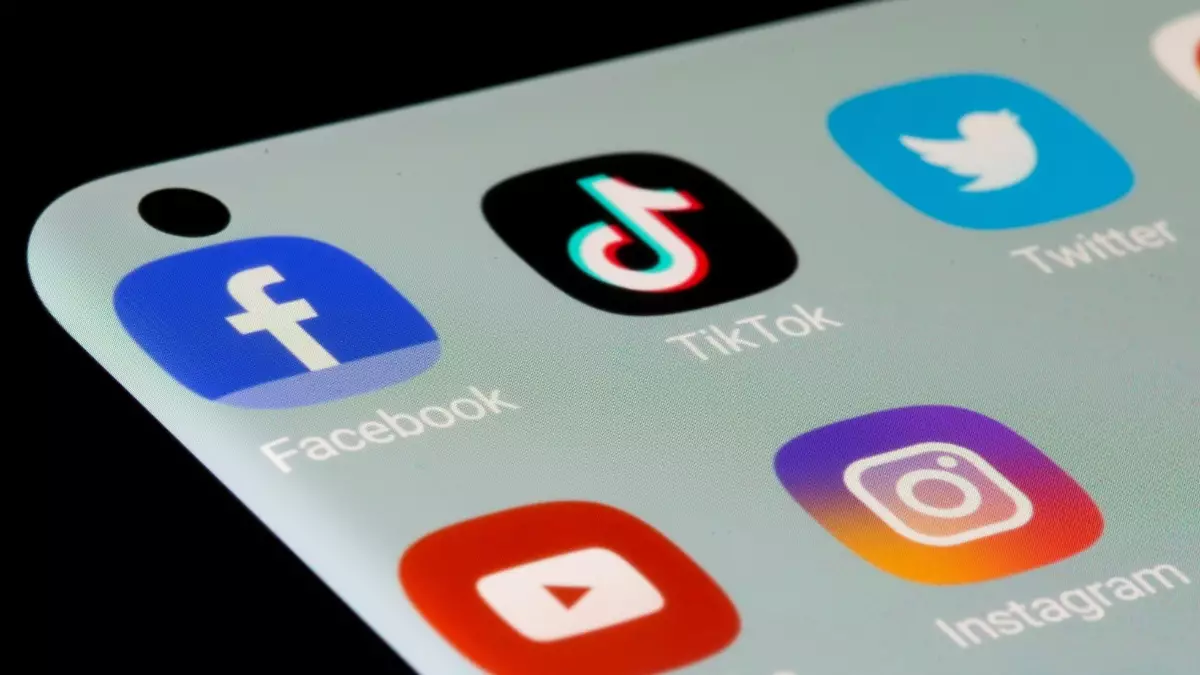In a bold initiative aimed at safeguarding children from the potentially detrimental effects of social media, the Australian government has announced plans to legislate a ban on such platforms for individuals under the age of 16. Prime Minister Anthony Albanese unveiled this progressive strategy, dubbing it one of the strictest measures globally concerning social media usage among minors. The proposal not only signals a substantial shift in Australia’s digital landscape but also highlights a growing awareness of the dire implications of unchecked access to social media for children.
Legislative Framework and Its Rationale
The proposed legislation, which is anticipated to be enacted by the end of next year, is an ambitious strategy designed to enhance the welfare of young Australians. Albanese noted that excessive engagement with social media can adversely affect the physical and mental health of children, particularly highlighting the impacts on self-esteem and body image among young girls and the misogynistic content that influences boys. The Prime Minister articulated a critical moment of adolescence, where teens are vulnerable to external influences, thus necessitating preventative measures to shield them from detrimental online experiences.
The Australian approach is unique in its stringent measures, which include age-verification protocols that have not been attempted to this extent in other countries. By employing methods like biometric verification or government identification, Australia aims to create a robust framework for maintaining the integrity of these restrictions.
As part of this legislative initiative, major social media companies, including Meta Platforms (which operates Instagram and Facebook), ByteDance (owner of TikTok), and Alphabet’s YouTube, will be held responsible for enforcing these regulations. Prime Minister Albanese emphasized that the burden of compliance would not fall on parents or minors but rather on the platforms to demonstrate their commitment to preventing underage access.
By removing exemptions for parental consent and existing accounts, Australia sets a precedent that calls into question existing practices in other countries, notably those where parental consent has enabled minors to bypass restrictions. This strict stance reinforces a shared responsibility model where platforms must take proactive measures rather than waiting for parental oversight.
While the proposed legislation has garnered support from various factions, including the opposition Liberal Party, there remains a notable critique from industry representatives. The Digital Industry Group, which includes major social media corporations, has cautioned that such blanket bans may inadvertently push children towards less regulated areas of the internet, depriving them of valuable resources and support networks.
According to Sunita Bose, Managing Director of DIGI, the approach of outright banning access reflects a dated mindset that fails to address contemporary digital challenges. She advocates for a balanced response, emphasizing the need to cultivate digital literacy and create safe online spaces, rather than merely restricting access to existing platforms.
Global Context and Potential Outcomes
Australia joins a growing list of nations attempting to regulate minors’ engagement with social media. Countries like France have proposed similar bans, albeit with qualifications for parental consent. In contrast, the United States has enacted policies requiring parental consent for accessing data related to children under 13, resulting in many platforms prohibiting users below that age.
As Australia moves forward with its pioneering legislation, the global community will be keenly watching its implementation and the subsequent ripple effects on both local and international social media practices. The outcomes could potentially either validate or challenge the efficacy of stringent measures in promoting a healthier digital environment for young users.
Australia’s proposed ban on social media access for individuals under 16 marks a significant step in acknowledging the complex relationship between youth and digital platforms. By instituting comprehensive age verification methods and holding companies accountable, the government aims to cultivate a safer online experience for minors. However, the debate surrounding such actions reflects broader discussions on the balance between regulation and freedom in the digital age, highlighting the need for ongoing dialogue and adaptive strategies as we navigate the ever-evolving landscape of social media. As implementation approaches, the world will look to Australia to see if this groundbreaking approach leads to meaningful changes in protecting youth from the potential harms of social media consumption.


Leave a Reply